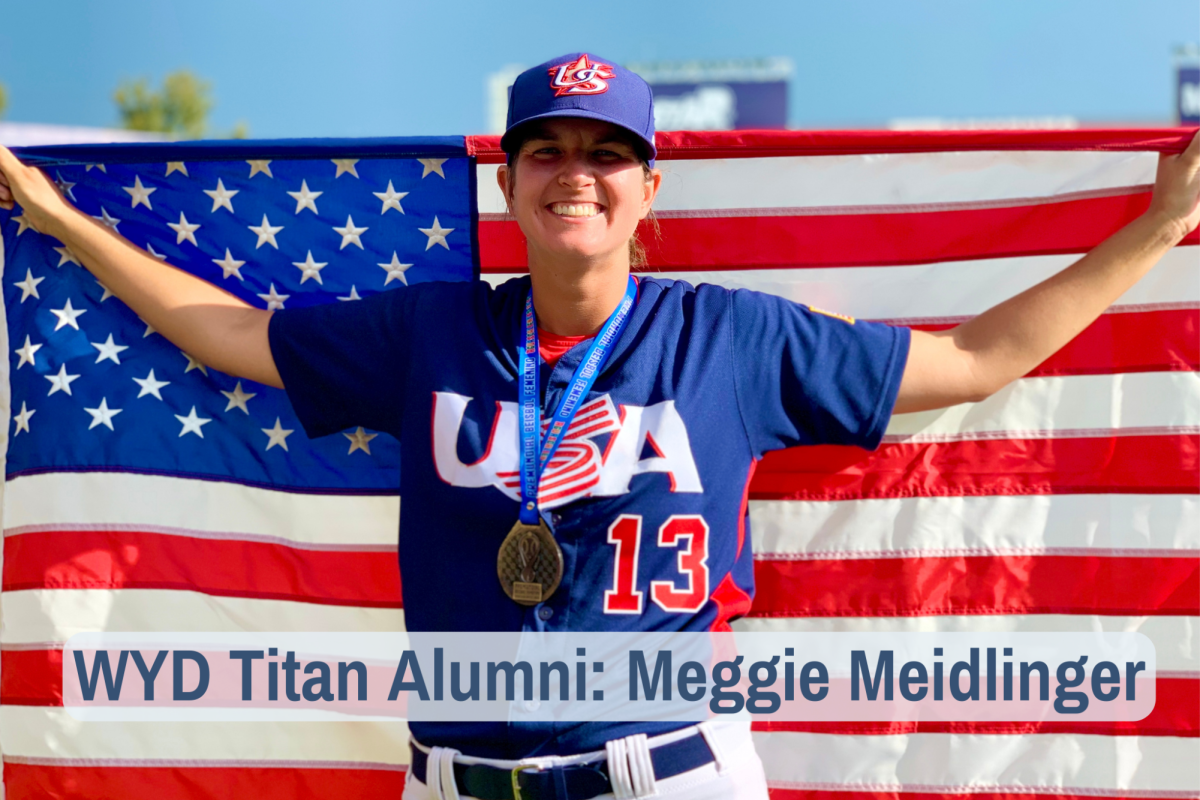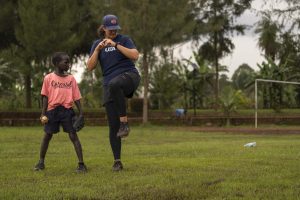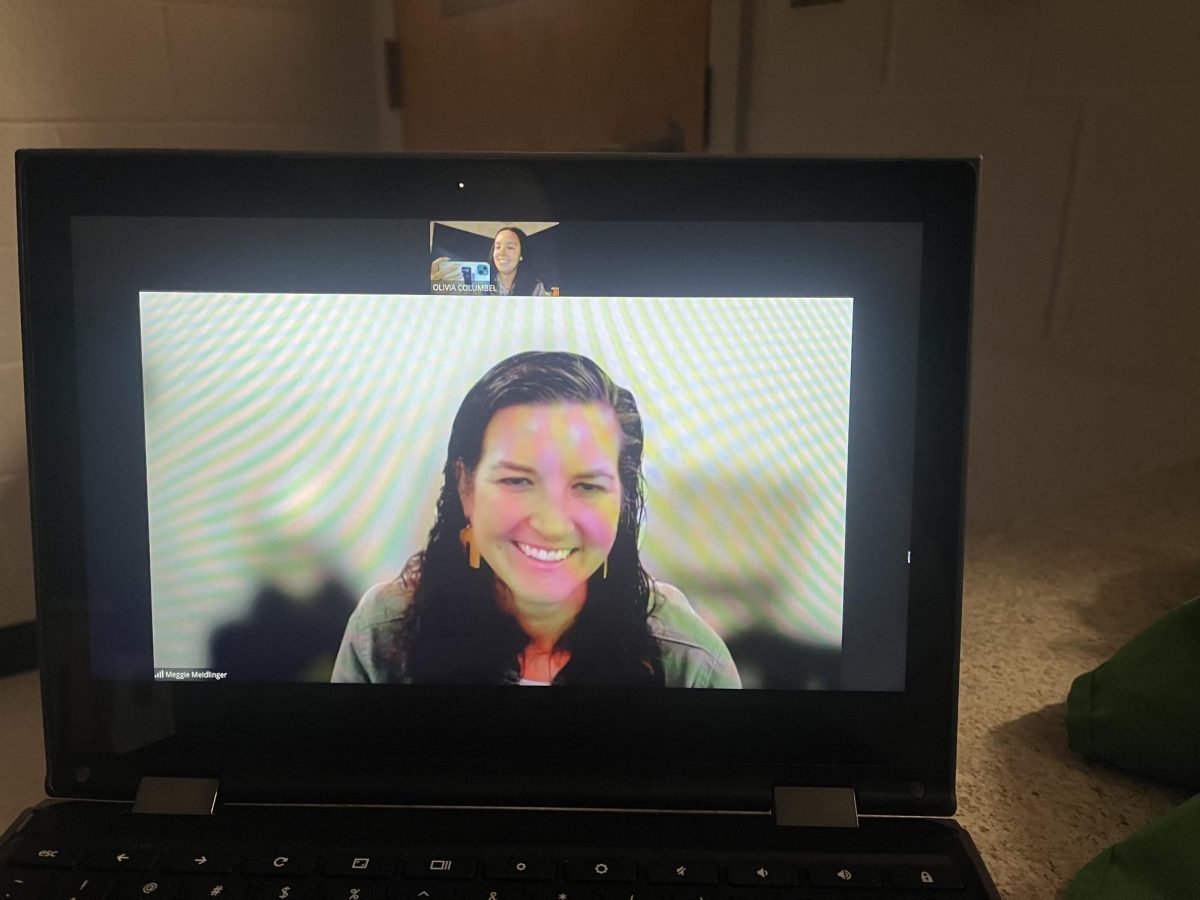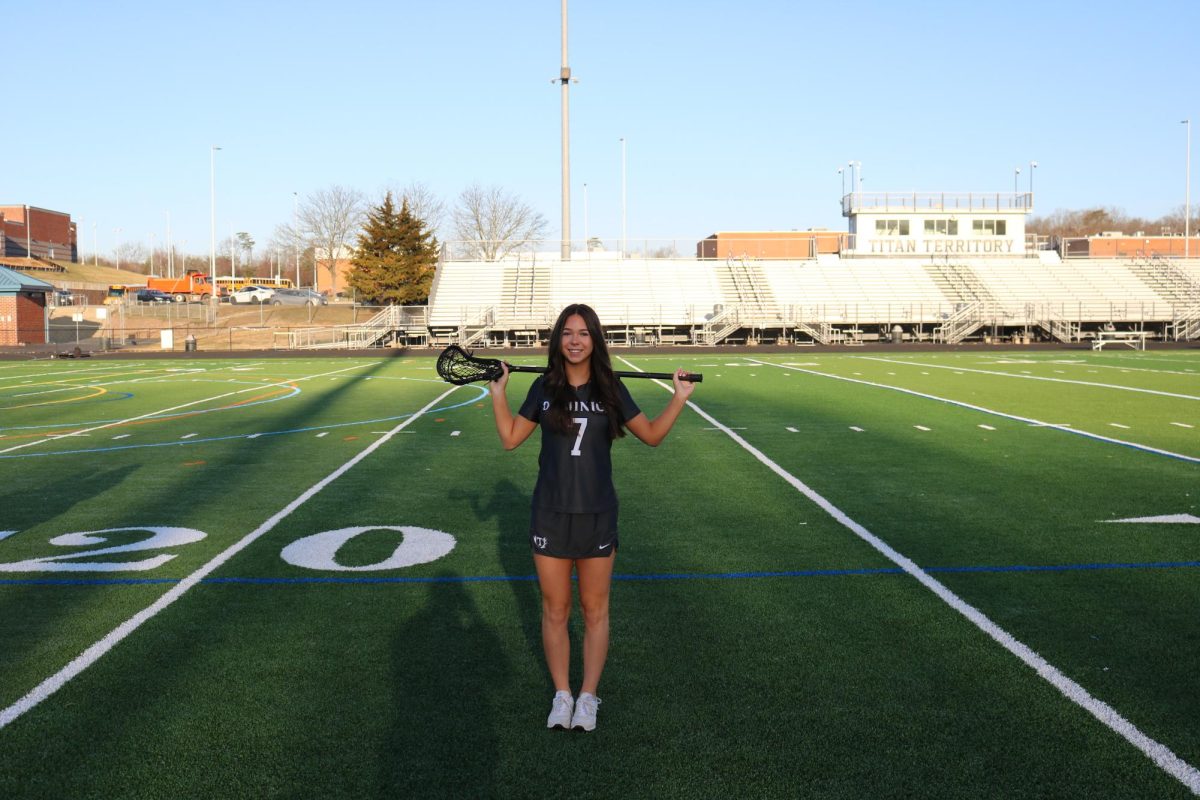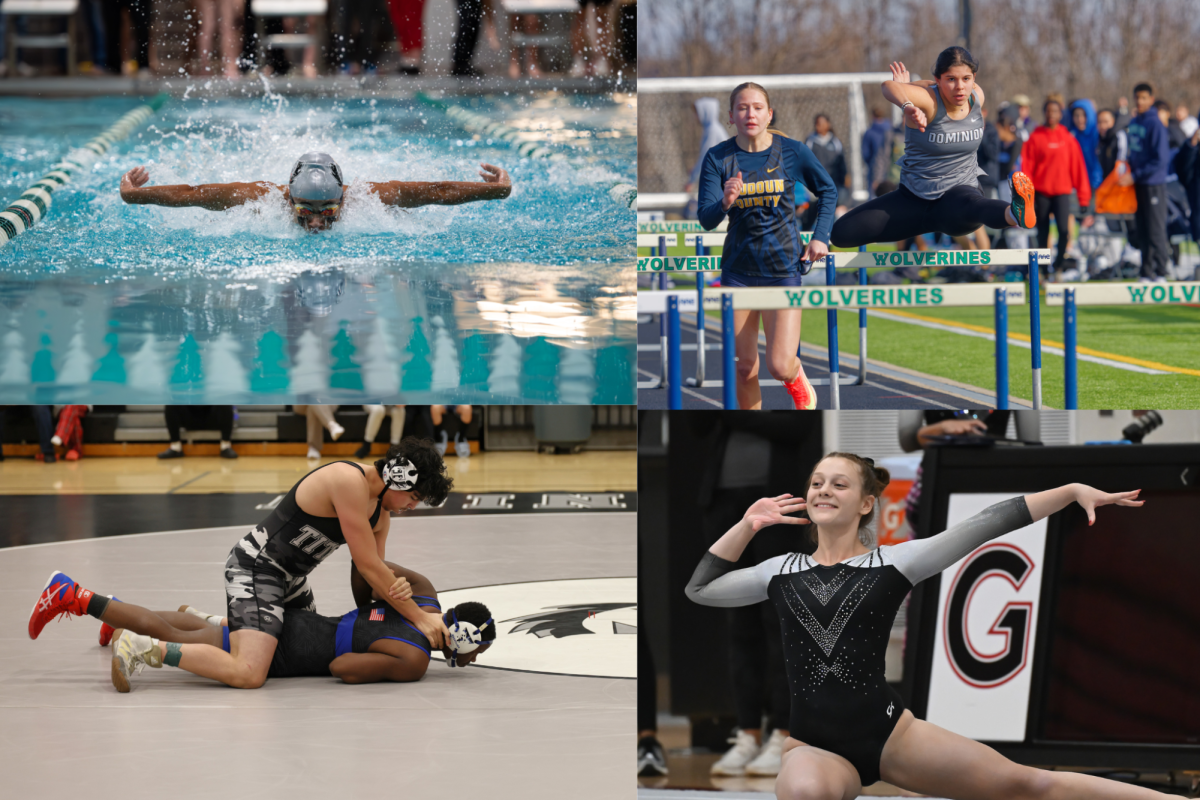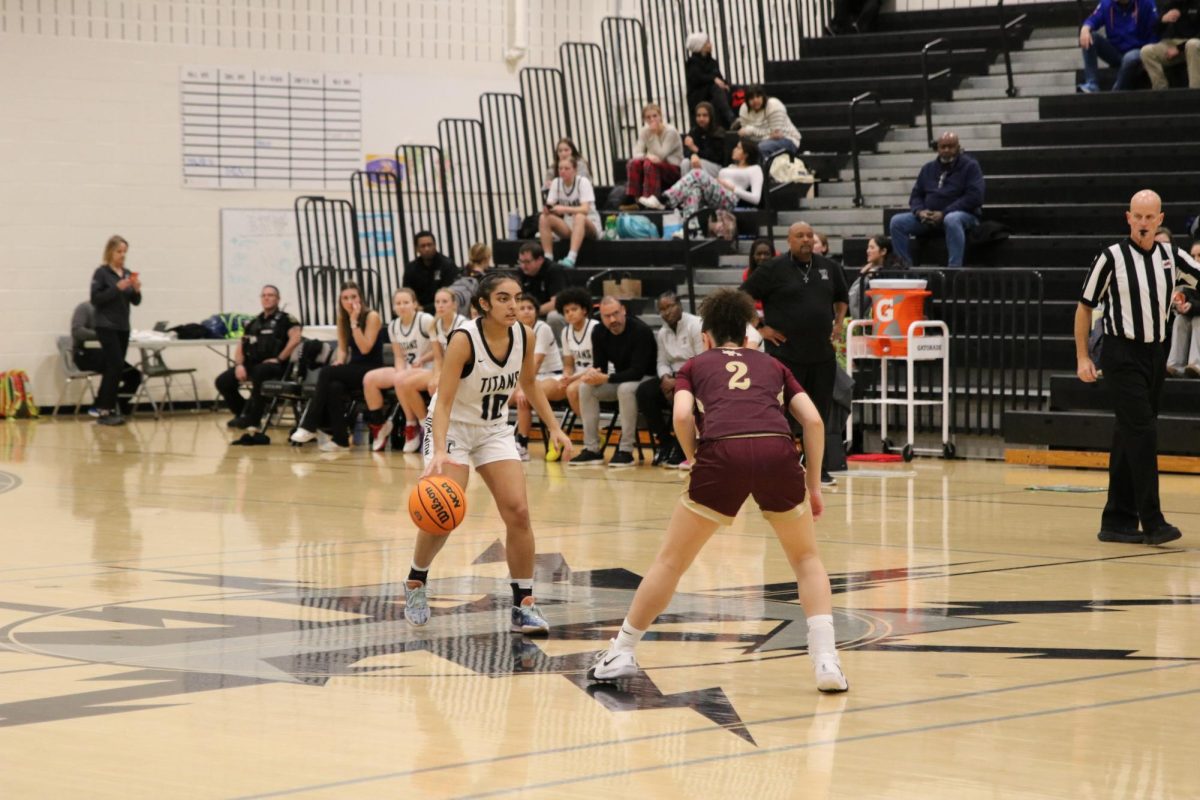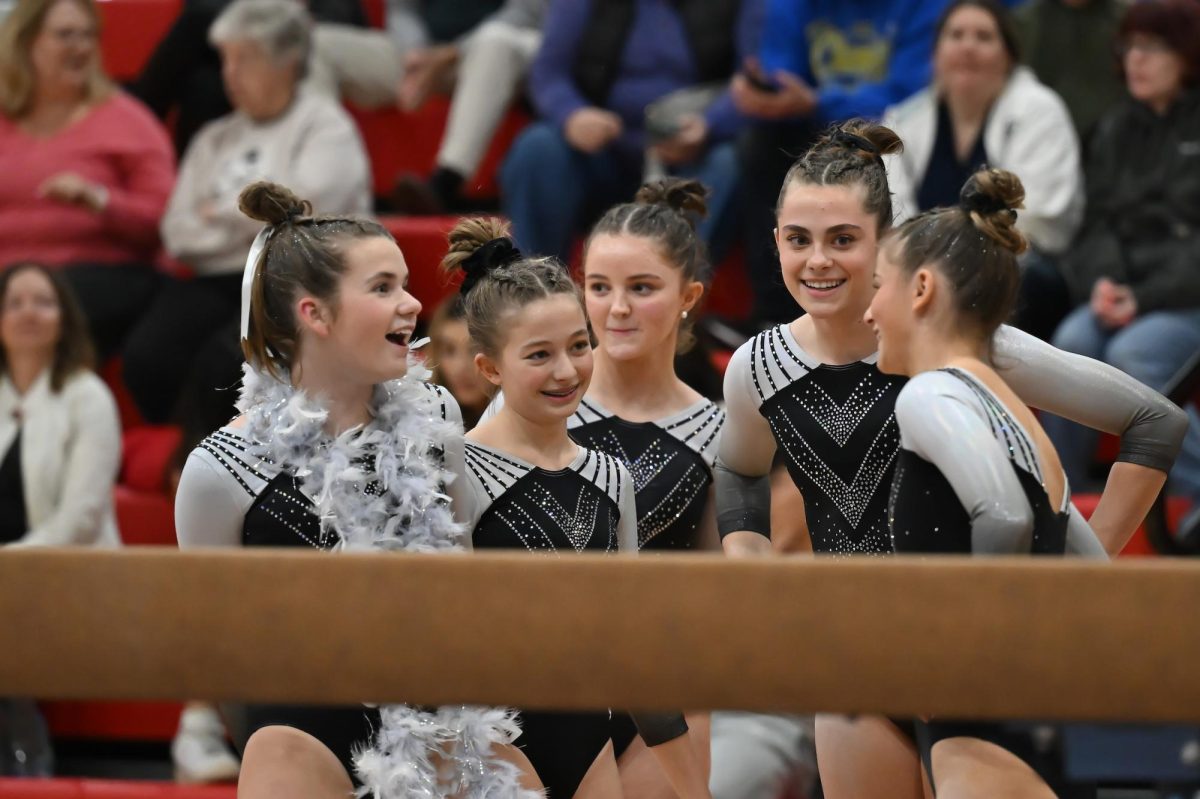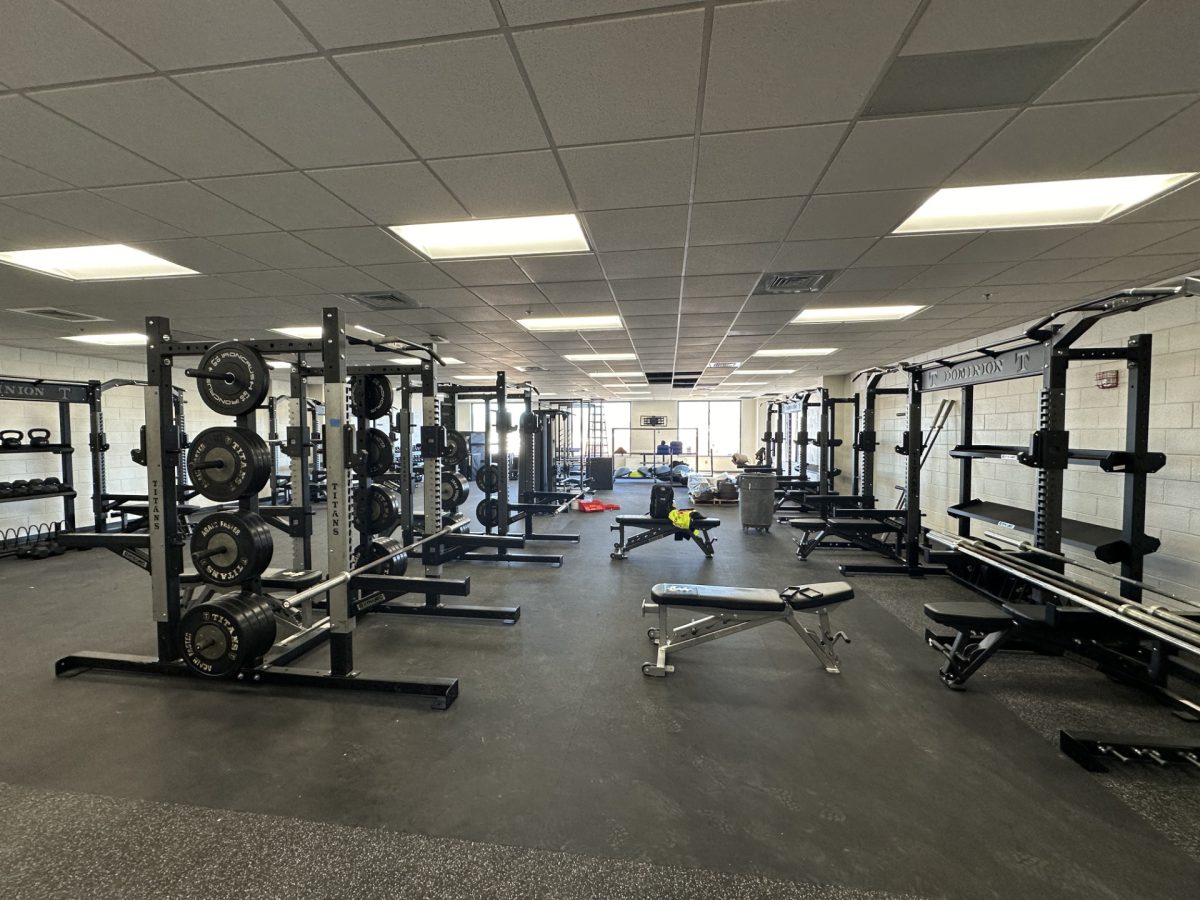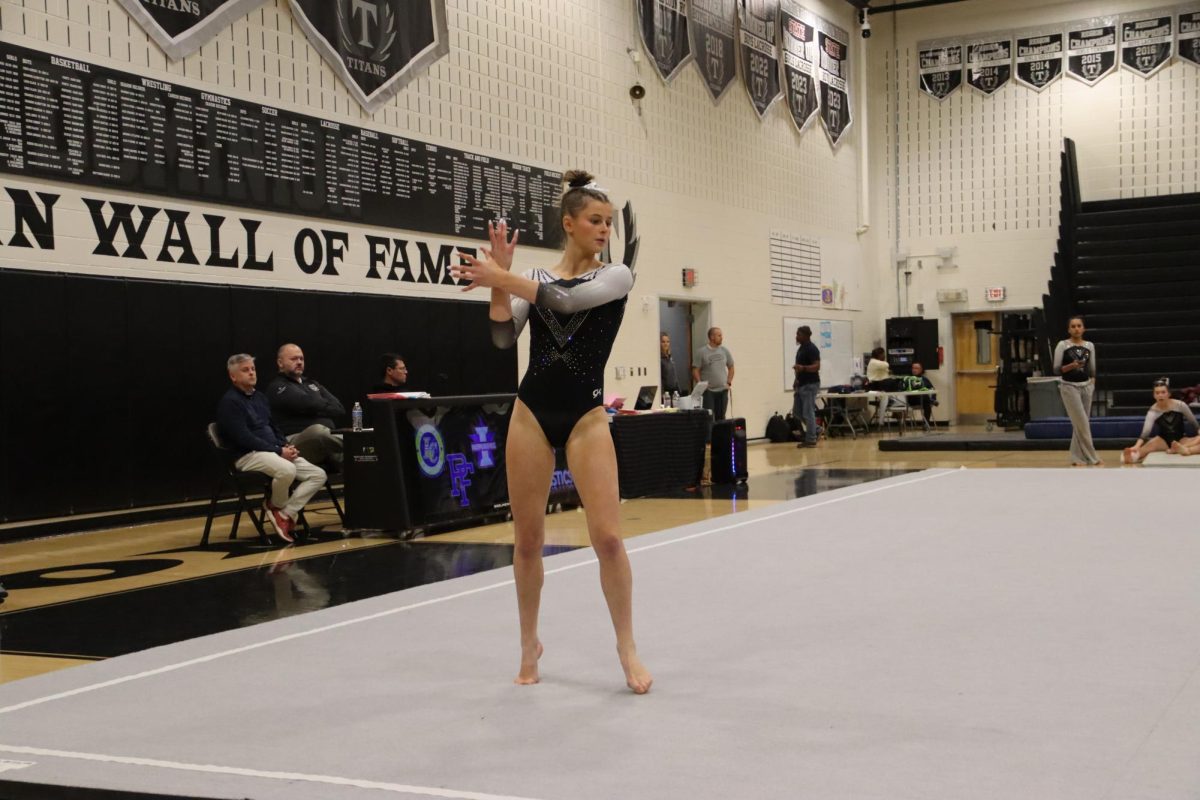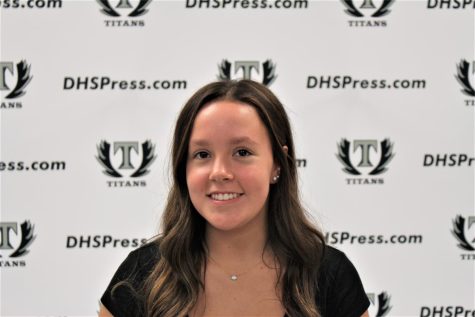2006 Dominion graduate, Meggie Meidlinger, is now a licensed architect, current player on the USA Women’s National Baseball team, and coach for several girls MLB and USA developmental programs. These achievements date back to her recognition on the Titan Wall of fame for being a member of the USA Women’s National Baseball team which she still remains a member of.
How did you feel about your accomplishments in high school? Did they open up any opportunities for you? Meggie is on the Titan Wall of fame as a Gold Medalist, recognized for being on the USA Baseball Women’s National Team in 2006.
They did. My sophomore year, I became the first girl in the state of Virginia to win a varsity boys baseball game. There were articles [published] about my accomplishment and from them, someone reached out to me to let me know that there was a Women’s League playing, and they invited me down. It was the Roy Hobbs tournament that following fall.
I grew up in an era before social media, before doing a ton of Google searches. I did not actually know that there were other girls playing baseball. I just kind of thought I was the only one, not in an arrogant way. The guys I played with were phenomenal, but as the only girl on the team, you just didn’t know there were other girls.
The articles about me, my sophomore year, opened up a door to find out how many other girls were playing baseball. My senior year is when I pitched a perfect game, and received a lot of media attention for that. It was through that media attention that a woman by the name of Julie Croteau who was coaching team USA that year reached out to me to invite me to come try out for the team. Before that, I didn’t even know that there was a Team USA. That media attention kind of opened up those doors for me to find out that other girls were playing baseball and it opened up my door [to] team USA.
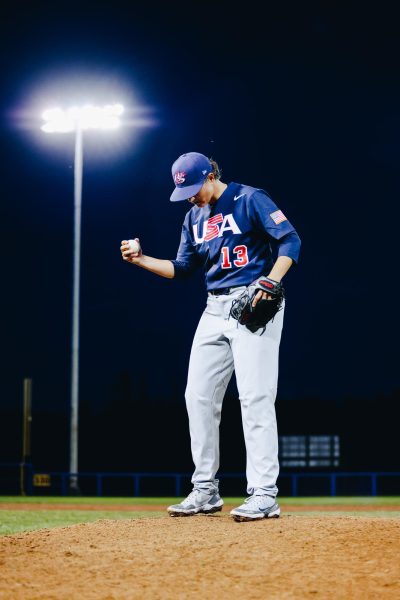
(Meggie Meidlinger)
Did playing on the national team interfere with your college attendance? Did it impact your major or choice of school? Meggie attended Project Graduation, the all night graduation celebration hosted at Dominion after graduation. She left early to drive to New Jersey for her first round of tryouts for Team USA, making a quick transition after the end of her high school career.
Ever since the second grade, apart from being a professional baseball player, I also wanted to be an architect. Junior and senior year, I knew if I wanted to continue playing baseball, it would be at a smaller school. There’s a lot of added pressure being the female on a boys baseball team and I knew I wanted to study architecture, so, I chose my school for a good architecture school, which led me to Virginia Tech, which I loved. Sometimes I wish I went and played a college sport, but I’m a practicing architect, so, no regrets, it worked out.
That was a hard decision because I love sports. I played club basketball at Virginia Tech. Then I was playing in [basketball] tournaments and still playing [baseball] for team USA at the time.
What would you say to other students who are deciding whether or not to continue their sport? How did not playing a sport collegiately affect you?

My older self would probably talk to my younger self a little bit differently now. I do a lot of MLB and USA coaching events with teenage girls playing baseball, and a lot of them are playing baseball on their guys team. I think now there’s a lot more opportunities for girls to play collegiate baseball, which is awesome. A lot of my USA teammates have helped open that door. I think, for me, I was honestly at a point in my career where I was a little burned out. [I decided that] I wanted to go to a bigger school as opposed to a smaller school. I’ll admit, I stepped onto campus. And after the first day, I missed sports. That’s why I played club basketball. And I loved it. I had great teammates, we traveled and competed.
But I think for students, if you know what you want to study, make a decision to still get to study what you want to while playing your sport. Thinking about some of the career things after college and how college could help build that for you.
Team sports teach us so much. That’s why whatever age kids I’m working with, I always encourage people to play sports, you just learn so much for life through team sports, the trials and tribulations, how to deal with defeat. I can give you a whole parallel on how sports play into my architecture career. Now, you know, my office actually has a whole article about that. And so there’s so much to learn.
What did being a part of the national team look like for you in college? Is there a large commitment of weekends? Did it change during seasons at all or was it the same all year round?
Unfortunately, it kind of looks the same now that it did then, the women’s USA national team. Unfortunately, it’s not a full time job. It’s a lot of training on your own, [and] we’re apart from each other a good amount. So luckily, one of my teammates here in Georgia lives a mile down the street and we can train together which is a huge gift and blessing. But a lot of it is training on your own. You have to set the bar high for yourself. It has to be yourself pushing you to achieve your goals. You can’t make excuses of ‘there was no field’, ‘there was no team’. You have to find ways. In college, I found different guys to throw with, to catch bullpens, to long toss to. To get in all the work that I needed to between the gym and the field. So, college was also really, really, busy with architecture and [it] was a demanding major with little sleep and long hours.
Walk me through what you were doing after college, did you begin working shortly after?
While in college, I knew that I wanted to go overseas with architecture. I [had a passion and] wanted to design and work in developing countries.

(USA Baseball)
How did you come to that realization? What led you from learning there was a problem there to feeling drawn to it?
I was very involved with Young Life in high school, we went on a mission trip to the Dominican Republic. That’s where I found out I made the second round of tryouts. That was my first experience in a developing country, kind of from there, I knew I wanted to spend time there. And then in college, I did several trips to Nicaragua. There’s a place in Nicaragua called Luxury Eco, which is the city dump where over 1000 people live and work. And farms are nothing but 10 sheets and cardboard.
I remember just hearing the story of an architect who didn’t even set foot there. They were like, I can solve all your problems. And here’s the house that will solve all your problems. After 30 days, it was torn to pieces and used to make their own. [There] was this, this question of how do you design for a community but still give them ownership of it? I ended up doing my whole thesis in college on that very question. All through college that molded and shaped through trips and things that I had seen through my own travels. After college, I was applying for different opportunities overseas. In the meantime, I was a long term substitute at Dominion. During that time, I loved it. Absolutely loved it. Then I got an opportunity with a ministry called EMI, Engineering Ministries International, that does engineering and architecture work overseas. They have seven different offices, and I love Spanish speaking countries, but I applied for the one in Africa and Uganda. What I thought was going to be a three month internship turned into a year and a half of living over there.
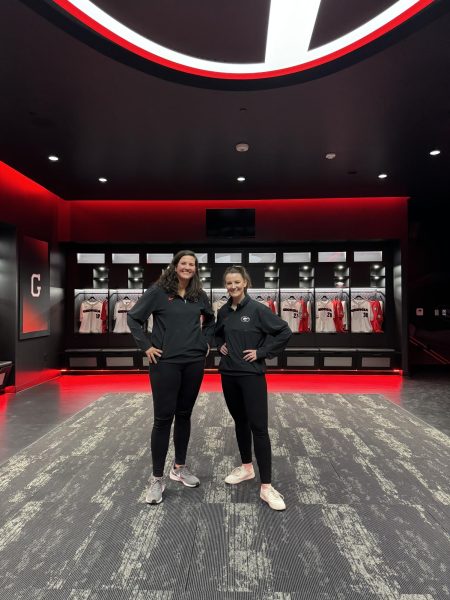
What is your current occupation? What is your involvement with the USA national team now?
I am a licensed architect, I work for a firm called HKS. I’ve done healthcare and commercial work in my career. I am currently doing sports architecture, which is a fun conglomerate of all my passions. I am a current member of the USA women’s national team, I’m the closer for the team, so I’m a pitcher. I’ve been on the team on and off since 2006. There’s a time in the middle, I was not playing. But then I’m also a coach for several of the MLB and USA development programs for girls aged nine to 18. I coach a lot of those events throughout the year.
What is one thing that you would tell to your high school self or a piece of advice that you would give to students currently?
There are going to be a lot of hurdles to do the things that you want to do. Find the people around you who are going to encourage you to do the things that you want to do. If you’re passionate about it, keep fighting for it, because it’s worth the fight. I’m so grateful to my teammates, and my school and coaches were incredible. I’m so grateful for the camaraderie and the people I had supporting me on my team. A lot of my USA teammates did not have that opportunity.
What was your experience on your most recent trip?
The trip that I just got back from Uganda, that was my time not playing baseball but I taught some of the locals how to play and catch.
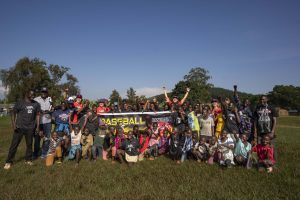
In 2019, we did a trip with a few of my USA teammates, and we helped start women’s baseball in Uganda. Since then, it has grown by the hundreds. They have eight different regions playing baseball now. The trip that we just went on was our first trip since 2019, since COVID, kind of put a damper on it, but it’s been cool to see the growth of it domestically.
How does it feel for you to take a look back now? As you’re talking, what emotions are brought up? How do you feel about all the things you have accomplished?
I don’t take any of it for granted, any opportunity to play or coach. There’s just something special about wearing USA, across your chest and representing your country that way. On the coaching side, it’s cool to see all these opportunities for girls.When I was growing up playing, it was MLB players who were my inspiration, because there were no girls to look up to, right. Now if you look at the MLB, I have a ton of friends coaching in the minor league system or on major league teams, and the amount of female coaches and [female players] on the field in the last five years is huge, for these young girls now to know that there’s the Women’s USA baseball team to aspire to, and to see these girls coaching at the minor league and Major League level.
How do you feel about the differences you’re making outside of the USA?
Unfortunately, they don’t have the opportunities like we do. If they’re not in school, they’re back in the villages, getting married at a very young age. To give opportunities through a sport, let alone through the sport I’m most passionate about, is really fun. [It] was just a joy to take my USA teammates over to Uganda, and to see how much it’s grown. [Now] there’s hundreds of girls playing there.
Is there anything else I should know about?
Tell everyone to follow us in the World Cup this summer. We qualified last summer and it’s the first World Cup since 2018.



